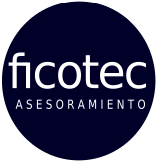Below, we list the 20 main new features of the regulation, which have been compiled by ATA. Sources close to the approval process assure that only small details remain in amendments for the final approval in the Commission, this week.
- Self-employed professionals will be able to change their contribution base up to four times in the same year, depending on their interests and income.
- The self-employed will be able to register and deregister in the RETA, so that they only pay for the days they have worked.
- The now famous flat rate of 50 euros is extended to one year.
- Entrepreneurs will be able to opt again for the flat rate two years after the end of the business activity.
- A flat rate of 50 euros has been established for women returning to work after maternity leave.
- The exemption of 100% of the self-employed quota for one year for the care of minors or dependents has been approved.
- The quota for the corporate self-employed has been corrected by linking it to the increase in the minimum interprofessional wage, so that it is determined in the general state budget (PGE) each year, and after discussing it with the most important self-employed associations.
- 100% compatibility of self-employment with the self-employed person’s pension is allowed.
- Surcharges for late Social Security payments have been reduced by half, from 20% to 10% in the first month.
- The excess contribution of workers with pluriactivity will be refunded without them having to apply for it.
- Self-employed workers will be able to access training adapted to their needs, in order to improve their competitiveness and consolidate their business activity.
- Improving conditions for entrepreneurs with disabilities.
- The hiring of disabled children of the self-employed is facilitated and allowed.
- An accident in-itenere (i.e. on the way to or from work) is recognised for self-employed professionals.
- Training in occupational risk prevention for self-employed professionals is improved.
- The self-employed are given a greater role in the participation of the organisations.
- The most important and representative self-employed organisations are now considered to be of “public utility”.
- The organisations will also have a year to join the ESC and to set up the Self-Employment Council.
- The self-employed will be able to deduct 30% of the cost of utilities, such as water, electricity, electricity and telephony, as long as they work from home.
- Deductions have been established for meals, when they directly affect the activity, with a limit of 26 euros per day, provided that they can be checked by telematic means.

